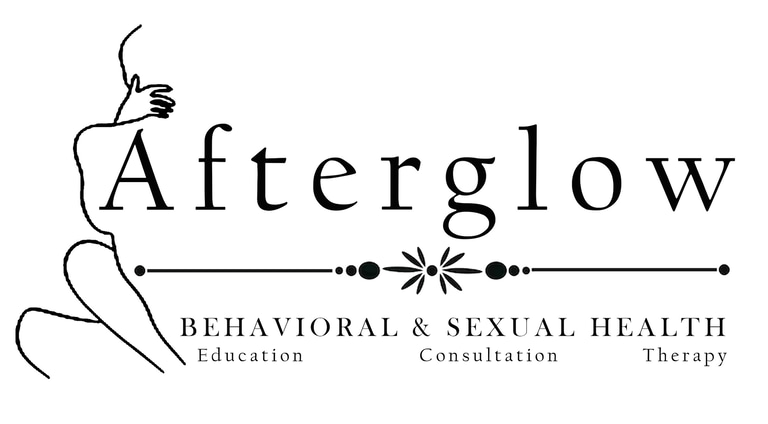Movember: Why Men’s Health Deserves More Than a Mustache
November marks Movember—the month where mustaches meet meaning and Afterglow turns its focus toward men’s sexual health. This month’s feature, “Movember: Why Men’s Health Deserves More Than a Mustache,” explores why men’s wellness—especially sexual wellness—has long been left in the shadows of public conversation. While women’s health movements have flourished with empathy, visibility, and funding, men’s health often hides behind stoicism and silence. The blog digs into the emotional, cultural, and biological factors that keep men from seeking care, highlights the connection between sexual health and overall wellbeing, and challenges readers to see vulnerability as strength. Because this Movember, it’s not just about growing facial hair—it’s about growing awareness, confidence, and connection. Healing begins with understanding—Growth begins with Afterglow.
GENERAL SEXUAL HEALTHPHYSICAL HEALTH AND SEX
Dr. Kent
11/4/20255 min read


Every November, faces across the world erupt in glorious patches of fuzz. Some grow elegant mustaches worthy of a Victorian portrait, others end up with something that looks like a ferret clinging desperately for life. But behind the playful scruff and social media selfies, Movember is about more than facial hair—it’s about saving lives.
It’s a global movement started in 2003 to raise awareness for men’s health—particularly prostate cancer, testicular cancer, mental health, and suicide prevention. Since then, Movember has funded over 1,250 men’s health projects in 20 countries, yet somehow, the conversation still struggles to compete with the massive spotlight on women’s health.
Let’s be clear: men’s health isn’t a competition. But it is a crisis hiding in plain sight.
Why Men’s Health Falls Behind: A Tale of Silence and Stigma
Here’s the awkward truth: men are dying younger—but talking less.
According to the CDC, men die about five years earlier than women on average. They’re also twice as likely to die from heart disease, three to four times more likely to die by suicide, and significantly less likely to seek mental health support. In fact, only one in four men who struggle with depression ever talk to a professional about it.
When it comes to sexual health, the silence gets even louder. Erectile dysfunction (ED) affects about 30 million men in the U.S., and low testosterone impacts around 15 million, but the shame surrounding these topics keeps many men suffering in silence.
Why? Because while women’s health has built a culture of community, men’s health has built a fortress of stoicism.
From childhood, boys are told to “man up,” “walk it off,” and “don’t cry.” Emotional suppression becomes a default setting, and vulnerability gets coded as weakness. So, when their body or sexual function changes, instead of seeking help, many men internalize it as failure.
As one therapist famously said: “Men don’t avoid doctors because they’re careless. They avoid doctors because they’re scared of what vulnerability might reveal.”
The Funding Gap: Why Women’s Health Gets the Spotlight
Women’s health deserves the attention it gets—let’s start there. Campaigns like Pink Ribbon for breast cancer have changed the cultural landscape, saving millions of lives. The advocacy, the marketing, the community—phenomenal.
But the difference in visibility is staggering. For example, the National Institutes of Health (NIH) allocates billions to women’s health research annually, while funding for men’s-specific conditions (like prostate or testicular cancer) lags behind by hundreds of millions.
Even corporate sponsorships tell the story:
The annual Susan G. Komen Race for the Cure brings in roughly $200 million per year.
Movember, despite being global, raises closer to $100 million annually—half as much for double the number of issues.
So, why the gap?
Marketing appeal: Women’s health has been branded with empathy and pink positivity. Men’s health, meanwhile, tried to brand itself with mustaches and beer commercials. One tugs at heartstrings; the other tickles irony.
Communication style: Women talk about health. Men talk about sports, cars, and… well, not their prostates.
Cultural permission: Society gives women more space to nurture themselves. Men are taught to endure themselves.
That’s a dangerous divide. Because when health becomes performative—something we “power through”—men lose the opportunity to prevent, detect, and treat issues early.
Sexual Health: The Untold Chapter of Men’s Health
When men do finally show up in a doctor’s office, it’s often because something’s gone really wrong—and many of those issues start in the bedroom.
Erectile dysfunction, premature ejaculation, infertility, low testosterone—these are not “small” issues. They’re vital indicators of cardiovascular, hormonal, and mental health. For example:
ED is often the first warning sign of heart disease.
Low libido can be a symptom of depression or metabolic syndrome.
And testicular pain or lumps can be early indicators of testicular cancer, the most common cancer in men ages 15–35.
In short, your sex life is your health life.
But because men are rarely encouraged to talk about their sexuality in healthy, emotional, or medical terms, they disconnect from the very signals their body sends. Many turn to porn for answers or avoid intimacy altogether, creating a cycle of frustration, shame, and disconnection that impacts both physical and emotional well-being.
The Emotional Mechanics of Silence
Let’s put this in gamer terms: your body is running a full system with overlapping stats—physical, emotional, sexual, and relational. If one starts lagging, the whole system slows. Ignoring sexual health doesn’t just lower libido—it lowers life satisfaction. Studies show that men who report healthy sexual lives also report higher relationship satisfaction, better mental health, and even longer lifespans. So, yes—your erection, your energy, your mood, and your self-worth are all running on the same operating system. But most men were never given the language to discuss this. That’s where Movember—and modern sex therapy—come in.
From Mustaches to Mindsets: Redefining Strength
Movember isn’t asking men to just grow mustaches—it’s asking them to grow emotionally. To redefine strength not as silence, but as self-awareness. To see vulnerability not as defeat, but as data.
To treat their bodies and sexual health as allies, not enemies. True masculinity isn’t about ignoring pain—it’s about investigating it. It’s about saying, “Something feels off,” and seeing that as courage, not failure.
Because here’s the reality: when men start addressing their sexual health, everything improves—confidence, relationships, even work performance. You can’t separate sexual health from mental or physical health; it’s all one connected system.
What the World Gains When Men Show Up
Imagine what would happen if men’s health got the same level of attention, compassion, and funding as women’s health campaigns. More men would live longer. More families would stay intact. More partners would experience emotional and physical intimacy without fear or shame. And maybe—just maybe—fewer young boys would grow up believing that real men don’t feel, talk, or heal. When we invest in men’s health, we’re not just saving men. We’re strengthening every relationship they’re part of—familial, romantic, and social. Because men’s health is family health. It’s community health. It’s human health.
How to Join the Movement
You don’t have to grow a mustache to make a difference. You can:
Schedule your annual checkup (yes, even that one).
Talk to a friend who’s struggling instead of avoiding it.
Support organizations that focus on men’s mental and sexual health.
Start the conversation—even if it’s awkward. Especially if it’s awkward.
Because progress doesn’t start with a fundraiser. It starts with a question:
“How are you really doing?”
The Afterglow of Awareness
This Movember, let’s make the mustache more than a meme. Let’s make it a reminder that men’s health—sexual and otherwise—matters. That behind every beard, every body, and every brave face is someone who deserves to live long, love deeply, and feel fully alive. It’s not just about surviving. It’s about thriving. It’s not just about awareness. It’s about action. And it’s not just about men. It’s about everyone who loves them.
Grow the mustache. Start the talk. Save a life—including your own.
Healing begins with understanding—Growth begins with Afterglow.
Connect with us
© 2025. All rights reserved.
dr.kent.sexhealth@gmail.com


